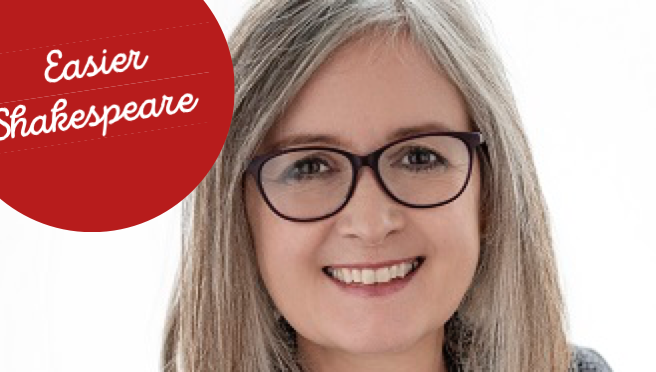 All summer I’ve been talking about Easier Shakespeare: teaching students some simple Shakespearean grammar and vocabulary so that they can tackle and understand the plays for themselves.
All summer I’ve been talking about Easier Shakespeare: teaching students some simple Shakespearean grammar and vocabulary so that they can tackle and understand the plays for themselves.
But why? What has pushed me down a rabbit hole of 400 year-old words, grammar and culture? Why, when I start talking about it, do I find it so difficult to stop?
I could write a very long answer in response to this question. But I like to keep my blog posts short, so I will try to distil my my thoughts and be concise.
Relevance.
Shakespeare is breathtakingly relevant. He talks about what it is to be human, how we think and how we feel. He examines power, what people do to get it and what they do with it once they have won it. And some of the most profound passages are written in verse that is almost painfully beautiful.
Students can learn about all this. The themes, ideas, characters. The plot, of course. They can learn quotes to use in exam answers. But if art exists to effect a connection, how possible is this if we struggle to experience the art directly, for ourselves?
Earlier this summer, I watched a livestream of Russell Brand performing his solo show, Our Little Lives. He talked about his own life and about Shakespeare. He performed several of Shakespeare’s speeches with startling rawness and humanity. He spoke about Shakespeare and the ‘alchemy of language,’ about accessing deeper truths about ourselves.
This was just about the time I had finished my 52 Poems project and was beginning to think I wanted to switch my focus more specifically to Shakespeare. And here was this guy, a comedian with a past that has been raked through by the media, feeling the same way about Shakespeare as I was. That Shakespeare belongs to us. That we should be working to make his words more accessible. Accessible to everyone.
A couple of weeks ago I watched a livestream of Romeo and Juliet at the Globe Theatre. This play examines the lives of young people and touches on mental health issues, but these are often forgotten as the idea of ‘romance’ is more attractive and easier to deal with. This production faced the difficult but relevant issues face-on. I thought it was great.
I also discovered Ben Crystal, his books and YouTube channel. Watch him speaking Shakespearean verse in Original Pronunciation (OP) or read his thoughts about Shakespeare and you will see that he, too, passionately believes in making Shakespeare accessible and fun for as many people as possible.
Easier Shakespeare is me doing my little bit to be part of this movement. As an English language teacher as well as an English tutor, I feel it makes sense to teach Shakespearean English just as I would teach English to a non-native speaker. We can make a big difference with a very little learning. Shakespeare may be the greatest playwright that has ever lived. He is certainly the greatest playwright in the English language. Surely we all have a right to experience his greatness first hand?
If you’d like to know more about Easier Shakespeare, contact me here, on social media or at info@harrietstack.com.